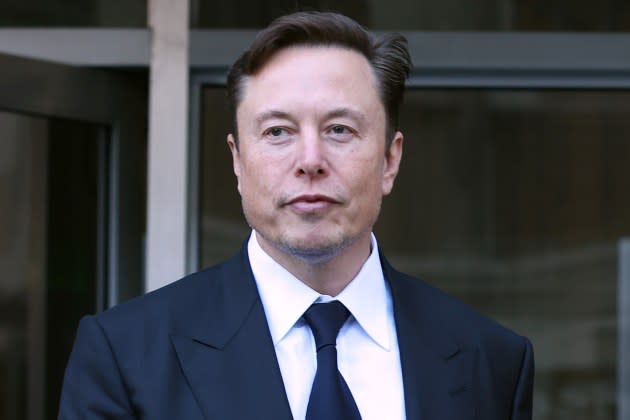Elon Musk Describes Twitter Acquisition as ‘Quite Painful’ in Unexpected Interview With BBC

Elon Musk has called his takeover of Twitter “quite painful” in an unexpected late-night interview with the BBC.
The tech billionaire sat down with BBC North America tech reporter James Clayton at Twitter’s headquarters in San Francisco on Tuesday evening local time.
More from Variety
Elon Musk Says Twitter 'Final Date' for Removing Legacy Blue Check-Marks Is 4/20
NPR CEO Slams Twitter for Labeling Its Account as 'State-Affiliated Media': It's 'Unacceptable'
Asked about his previous comments regarding Twitter being “painful,” Musk acknowledged that was still the case but added, “I wasn’t stabbed, like some people around here.” The comment is understood to refer to the murder of Cash app founder Bob Lee, who was stabbed to death in San Francisco last week.
“I’ve been under constant attack,” Musk continued. “It’s not like I have a stone cold heart or anything. If you’re under constant criticism or attack and that gets fed to you including through Twitter – it’s rough, you know. Now at the end of the day I think if you do lose your feedback loop that’s not good so I think it is important to get negative feedback. I don’t turn replies off and I removed my entire block list so I don’t block anyone either. So I get a lot of negative feedback.”
“If the media is writing non-stop stories about why you’re a horrible person, I mean, you know, it’s hurtful obviously,” Musk added.
When Clayton asked if Musk had an “odd” relationship with the media, Musk acknowledged he did. “It is somewhat of a love-hate relationship although it might be [going] a little more towards the hate. This is part and parcel of having a free media situation. I do take heart in that the media is actually able to trash me on a regular basis in the U.S. and the U.K. and whatnot. Whereas in a lot of places the media cannot say mean things to powerful people. But I think it’s better that we have a situation where the media can say mean things to powerful people.”
Clayton also asked whether removing verification badges from users including legacy media such as the New York Times could potentially spread misinformation on the platform. “I must confess to some delight in removing the verification badge from the New York Times,” Musk said. “Anyway they’re still alive and well so they’re doing well.”
After the interview wrapped Musk stayed online to answer questions via Twitter Spaces.
Best of Variety
Sign up for Variety’s Newsletter. For the latest news, follow us on Facebook, Twitter, and Instagram.